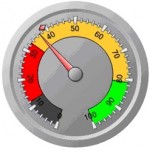 Most evidence from the field suggests that we are living through a crisis in management. It’s widely known that employee engagement is low, and what’s more, much of this disenchantment is due to poor management.
Most evidence from the field suggests that we are living through a crisis in management. It’s widely known that employee engagement is low, and what’s more, much of this disenchantment is due to poor management.
That’s bad enough of course, but there is also a strong illusory superiority bias in place amongst our managers. They literally think they’re much better at the job than those they manage do.
This disconnect between what managers think and what everyone else thinks is quite possibly the key cause of the low employee engagement we see today. After all, a major part of the managers role is to understand and support their employees, yet it seems so few have any idea about their teams motivations or needs.
In marketing you have the Net Promoter Score, developed by Frederick Reicheld, to gauge the extent to which a customer would recommend your products or services to their peers. It’s spawned the heuristic that unhappy customers share their unhappiness much more than happy ones.
Does the same apply for managers? Managers at the Swiss pharma company Roche thought so, and devised a variant of the Net Promoter Score for their managers. They called it, catchily, the Net Management Promoter Score. Just as with the original the premise is incredibly simple. Employees are asked one solitary question:
“How likely is it that you would recommend your line manager to a colleague, as someone they should work for in the future?” (1 = not at all, 10 = extremely likely.)
They hoped that it would get to the crux of things in a way that 360 degree feedbacks and their ilk fail to. Evidence from companies using this approach suggest that results correlate quite nicely between general employee engagement, and the NMPS scores of their managers.
As a simple mechanism, it may be something to consider adding to your own appraisal toolkit.